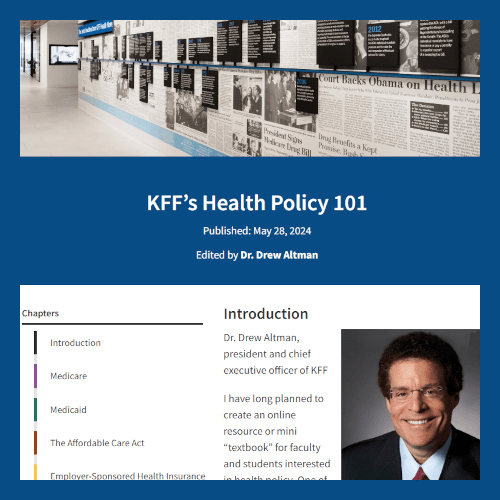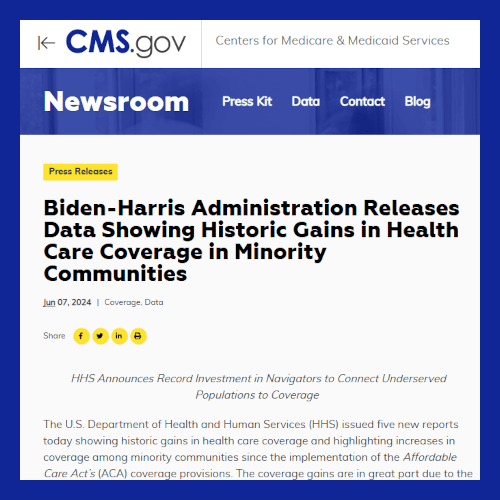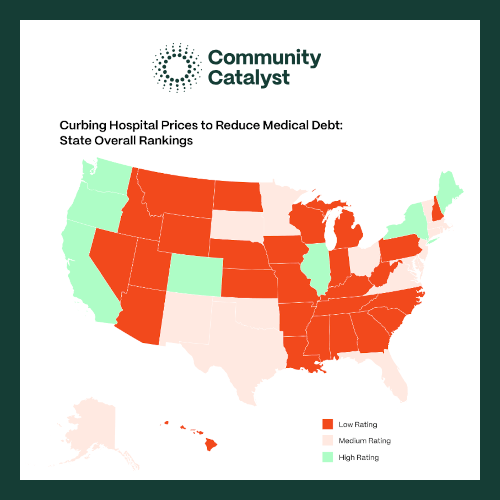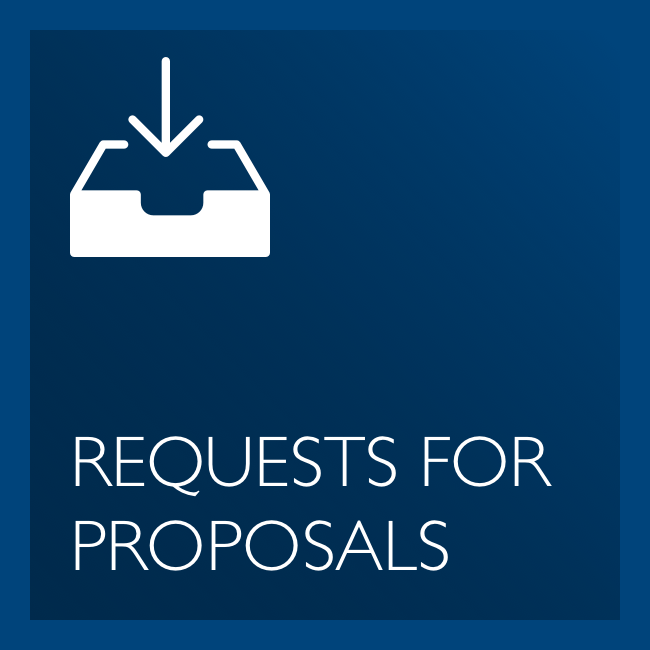KFF Introduces Health Policy 101—A Primer on U.S. Health Policy
KFF launched a new resource —the Health Policy 101 — an online resource or mini “textbook” about health policy for faculty and students. Drew Altman felt the need for a resource like this ages ago, when he was at MIT writing a book on health care regulation and needed a reference with real detail on public programs and health costs. It took a while to produce it but now it’s ready!
CMS Announces an $500 Million Funding Opportunity to Increase ACA Outreach and Enrollment Efforts
Centers for Medicare & Medicaid Services (CMS) announced the availability of $500 million in grants over the next five years to increase the number of organizations who help people enroll in health coverage through the Federally-Facilitated Marketplace (FFM) on HealthCare.gov. This is the largest funding allocation CMS has made available for Navigator grants to date.
A Compendium of State Policies to Curb Hospital Prices and Reduce Medical Debt
Health care in the United States is the most expensive in the world by far and the reason is simple – health care providers keep increasing the prices of services. Hospitals, which represent the largest component of health care spending, have an outsized influence on medical debt in their communities through their policies and behavior.
Blue Cross Blue Shield of Massachusetts Foundation: July 2023
This study, commissioned in collaboration with the Health Equity Compact, aims to quantify that economic burden associated with solutions for reducing inequities in health (which require investments of time and resources for which there will always be competing priorities.)
Blue Cross Blue Shield of Massachusetts Foundation: May 2023
The Blue Cross Blue Shield of Massachusetts Foundation Massachusetts released a new report, “Closing the Coverage Gaps: Reducing Health Insurance Disparities in Massachusetts.” The foundation noted that Massachusetts has been exemplary in developing health insurance coverage policies to cover its residents.
New York State Foundations Working Together to Preserve Health Insurance Coverage for Millions of New Yorkers
In March 2020, the United States declared a public health emergency and enacted historic COVID-19 relief legislation. It increased Medicaid funding to states contingent on several conditions, including a “continuous enrollment” requirement that prohibited states from terminating Medicaid enrollees’ coverage until after the public health emergency had ended. How well this worked is a rare silver lining of the pandemic: an estimated 20.2 million people gained coverage since March 2020, and the uninsured rate dropped across the country.
Advancing State Data Collection on Opioid Treatment
This webinar learned about a national initiative launched by the Pew Charitable Trusts that offers states a core set of metrics to track opioid treatment access and use. Presenters described how better data collection can target critically needed progress and discuss the role philanthropy can play in these efforts.
Blue Cross of Massachusetts Foundation: June 2022
The Blue Cross Blue Shield of Massachusetts Foundation released a report outlining key strategies for maintaining Medicaid coverage when the federal government ends the COVID-19 public health emergency, a regulatory transition that will put many eligible individuals at risk of becoming uninsured.







